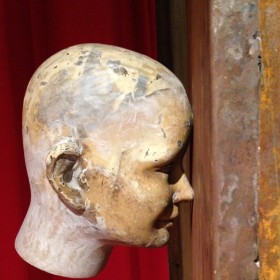非常抱歉,
你要访问的页面不存在,
非常抱歉,
你要访问的页面不存在,
非常抱歉,
你要访问的页面不存在,
验证码:

职称:Professor
所属学校:University of California-Los Angeles
所属院系:humanities
所属专业:Comparative Literature
联系方式: 310-825-9503
Ph.D. in literature at Columbia University Trained in Anthropology at Columbia, the London School of Economics, and Hamilton College. Schooling at St. Jude’s, St. Paul’s, and Karachi Grammar School, all in Karachi, Pakistan.
At the broadest level, I’m concerned with a range of forms of inequality in the contemporary world and how they impede the possibilities for historically autonomous action by social collectivities in the societies of the Global South. As such, I see my work as descended from anticolonial critique in the 1960s and 1970s. But it has also been influenced by the epistemological turn given to the latter by Edward Said. I’ve therefore been preoccupied with the very possibilities of critical knowledge of these societies within the dominant practices of the modern (“western”) humanistic disciplines. One cluster of issues of special interest to me concerns the possibilities of secular imagination in postcolonial societies, and in particular those with a Muslim civilizational orientation, including the Indian subcontinent and the Arab world. And I’ve sought to explore the inherent majoritarianism of the modern state as a social and political form and the fate of those groups and imaginaries that are deemed by it to be “non-national” or “minority” formations. I’m therefore also a student of the history of the so-called Jewish Question of Post-Enlightenment western Europe, the very first instance of the “crisis of minority” in modern societies. My book Enlightenment in the Colony: The Jewish Question and the Crisis of Postcolonial Culture examines these two sets of processes and institutions. It looks at the European origins of the problematic of the national-religious minority and its dissemination and institution in colonial and postcolonial societies. My most recent book, called Forget English! Orientalisms and World Literatures, offers a critique of world literature discourse from the perspective of non-Anglophone and non-Western literary imaginaries. Ongoing projects include a book on criticism and the exilic imagination titled Edward Said in Jerusalem: Criticism, Secularism, Exile; another on postcolonial Islamic thought and its colonial origins that is called Brand New Muslims: Islam, Secularism, and the West; and a third one concerning the figure of immigrant in the ongoing crisis of European integration, titled Strangers in Europa: Immigration and the Crisis of Unification. I am also co-director of an international research collaboration called “Rethinking Bandung Humanisms.”